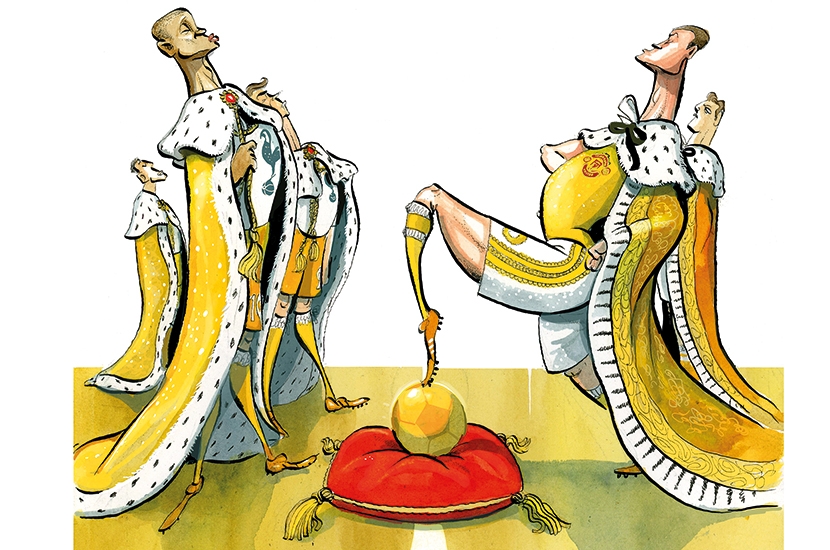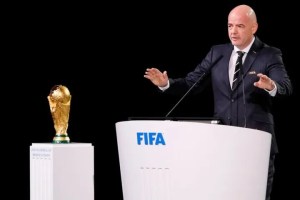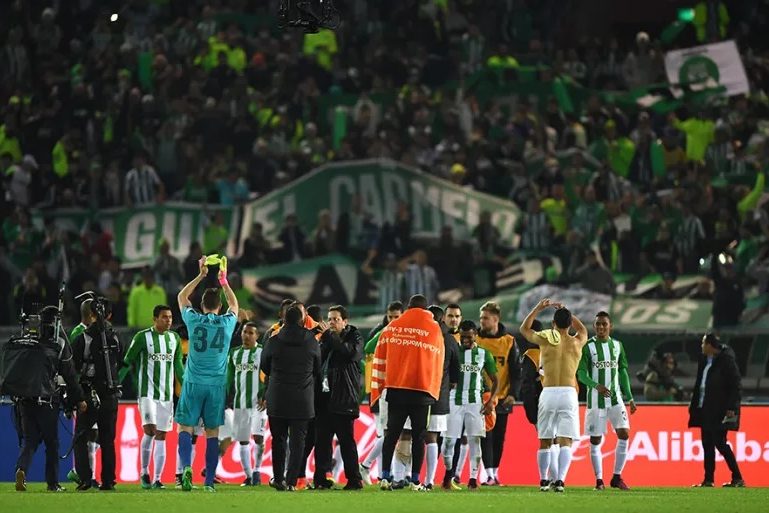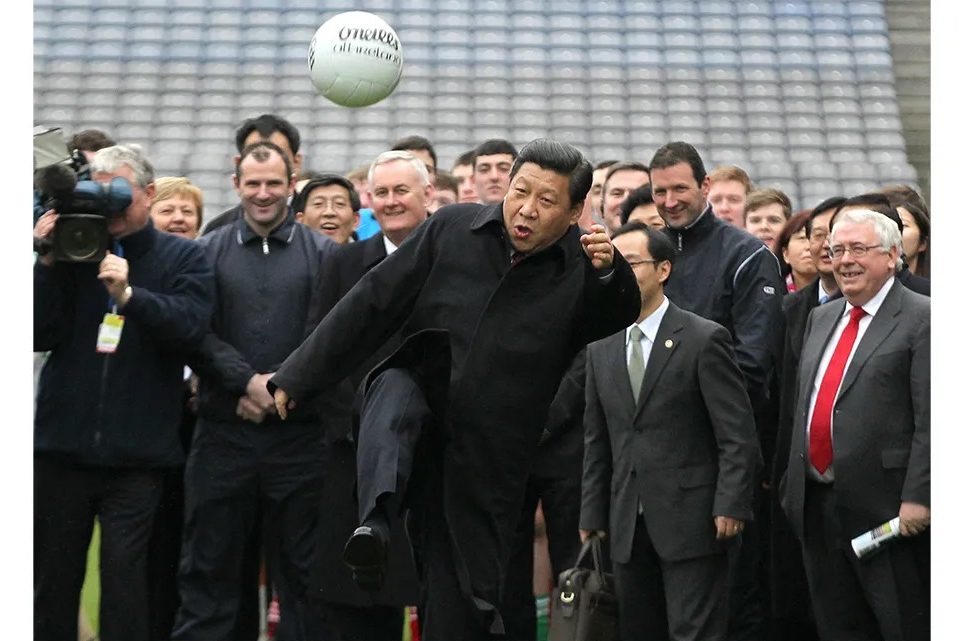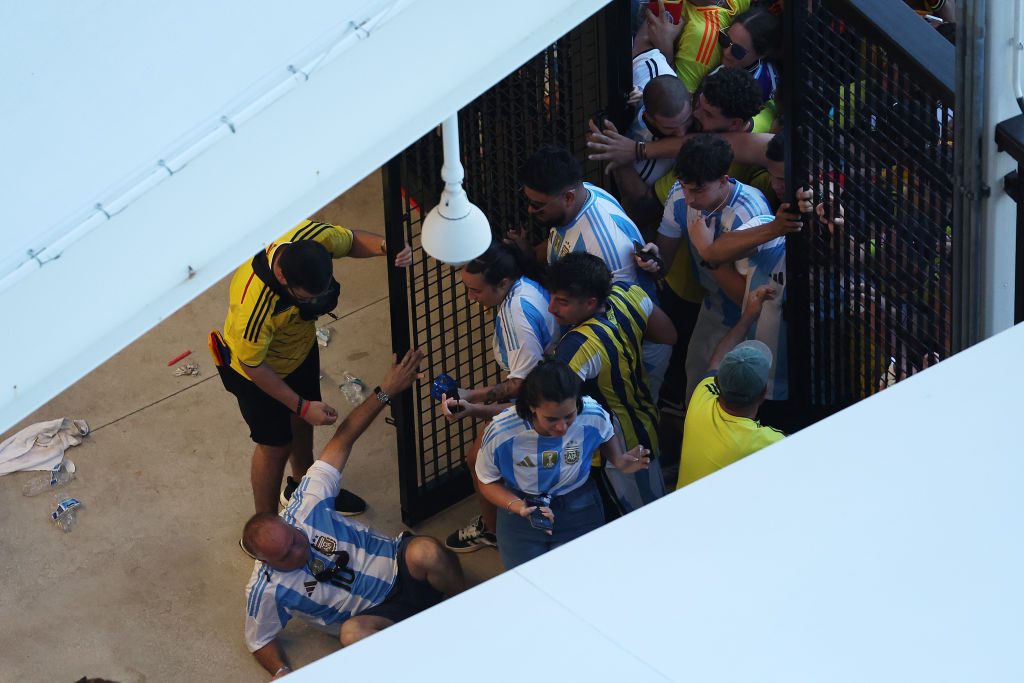Not for the first time, Britain’s prime minister has executed a very sharp U-turn. Last month, heralding the achievements of AstraZeneca, Boris Johnson professed that the vaccine had been made possible because of greed, echoing the phrase used by Gordon Gekko in Wall Street that ‘greed is good’. Now, though, he seems to be of the mind that greed is very bad indeed. He pronounced himself ‘horrified’ that six Premier League clubs intended to form a European Super League, from which, following the American model, they could never be relegated, in order to trouser even more outrageous sums of money for themselves.
He was not alone: the entire country reacted with disgust and fury. Even Prince William expressed his ‘concern’ (if only we knew what Meghan thought). Apparently shocked at the reaction which greeted their announcement, all the English clubs involved have now resiled. But believe me, this will be back, and they will, in the end, have their way. Or most of their way. That’s what’s happened before and it will happen again. And — dare I say it — they might be right.
The official public view is a little misty-eyed: how grotesque that our national sport could be ripped away from its working-class base, in which the clubs are centers of an honest, horny-handed community where men with no teeth and wearing cloth caps, their faces blackened by coal dust, gather each Saturday at three o’clock with their rattles to cheer on the local heroes. A note to Boris and Wills, then: football hasn’t been like that since about 1935. The paying fans haven’t mattered a jot since the formation of the Premier League in 1992 — the money is all from TV and merch. And the clubs? Arsenal: owned by a Yank, managed by a Spaniard, and fielding three British-born players per game at most, none of them from north London. That’s the template. These clubs are money-making franchises, nothing more.
But we have been here before. The Premier League was bitterly opposed by the smaller clubs. The creation of a greatly expanded format for the European Champions League attracted fury and odium when it was first mooted. Eventually both of these things came to pass, in a modified form — and so, in a modified form, will this. Meanwhile we can all enjoy the denouncements from those fine, upstanding institutions Uefa and Fifa: fantastically greedy organizations historically riven with corruption and so in thrall to lucre that they choose baking, arid, fly-blown desert slave states to host the World Cup. Oh, and our own knee-bending, virtue-signaling Football Association and Premier League.
The original proposals wouldn’t have worked, not least because the clubs signed up didn’t remotely constitute a Super League. The best club in Europe was absent — Bayern Munich. A Super League without Bayern is like Godzilla without the big dinosaur thing. There would have been no Borussia Dortmund, either, or Ajax, or Paris Saint-Germain. Instead it was to be six English clubs kicking a ball around with a few Latino ponces.
Of the six English clubs, two are currently marooned in mid-table in the Premier League. Quite how Tottenham Hotspur qualify as a big club utterly escapes me. They have never won the Premier League (Blackburn Rovers and Leicester City, both excluded from these proposals, have) and when they last won the top league title, Adolf Eichmann was on trial for war crimes in Israel and the farthing had just ceased being legal tender. They only won it once before that, too, so they have no historicity as a ‘big club’. Spurs’ average position in the Premier League is between seventh and eighth and their average attendances since the PL was formed puts them just above mid-table for that as well. Aston Villa, Everton, Leeds, West Ham, Sunderland, Nottingham Forest and Newcastle all have far stronger claims to ‘bigness’ than Spurs. The only thing big about them is their humongous debt — projected at latest estimates to be £1.17 billion, the biggest of any club in the world. Perhaps that’s how they got in.
Of the rest, Manchester City have been ‘big’ only in the last two decades (and were in the third tier as recently as 1999). Ditto Chelsea: another club whose long-term historical record is one of flashy and rather annoying also-rans, good for the cup but not much else.
But never mind all that. Uefa’s insistence that footballers taking part in the new league would be debarred from playing for their countries, allied to the suggestion that the clubs themselves would be banned from their domestic leagues, means the proposal simply was born a dead dog. However, we should see it more as the opening salvo in what will be a protracted war, ending with an ameliorated version which will probably result in the revenues from such a league sponsoring ‘grassroots football’ (i.e. the smaller clubs that aren’t invited to take part) and a greater proportion of the league’s members drawn from clubs that have actually been successful that season, rather than those who think themselves above the fray. It will happen, in the end, no matter what Piers Morgan or Prince Harry have to say.
While reports focused on protests from the fans of the ‘big six’ — strange dimbos who have seemingly only just realized that the teams they support are interested only in money and don’t give a damn about them — the fans of the supposedly smaller clubs, reacted rather differently. ‘Good riddance’ was the consensus on the fans’ forum of my club, Millwall, where the greedball antics of the Premier League are cordially despised (although we retain our right to play in it, if we get the chance).
The same was true of many clubs around the country: let them go, we hate them anyway. Fair enough, but it might be a case of having one’s cake and eating it. Because the unpalatable truth is that the more money that comes into the game, the more those clubs profit. Yes, the clubs where that vision expressed by Boris still kind of exists: a localish team which gets the majority of its revenue from the supporters, even if the cloth caps, rattles and coal dust have gone.
I was as outraged by the formation of the Premier League back in ’92 as all the other ‘real’ soccer supporters. I bought into all those dire predictions. Money would be concentrated among the haves, and the have nots would suffer. The top division would become boring, dominated by the same few teams. The national side would suffer because English players wouldn’t get in the starting line-ups of the top clubs. Small clubs would go bust. And yet almost the complete opposite has happened.
Owing to the careful awards system in the top flight, with comparatively little difference in the money given to a team which finishes bottom from one which finishes top, the cash has been spread around very successfully. Not just in the Premier League, either, but down below — where rather than withering on the vine, the Championship has prospered to the remarkable extent that it is now the third most attended soccer competition in Europe, above Spain’s top division La Liga and Italy’s elite, Serie A, and miles above the French Ligue 1. Regulated capitalism in action: the trickle-down effect has worked, partly through exorbitant transfer fees paid for players from the lower leagues and partly through the multitude of clubs who have managed to reach the Premier League and scoop up all that dosh. The likes of Bradford City, Barnsley, Swindon Town and Oldham Athletic have all played in the top tier since 1992 and got their ill-bred hands on those riches.
And then there are the ‘solidarity payments’ enforced on the big clubs by the FA, which have helped keep the tiniest clubs afloat. The national side has benefited too, through its players having to compete every week against the best players from the Continent, which is why we have defenders who, when they pass the ball, do not look like flamingos on an ice rink. The money pouring in over these past 30 years has increased exponentially — a bubble which must surely burst, the skeptics insisted and perhaps kind of hoped. But it didn’t. Not even during this last plague-ridden season. It just grew and grew and is still growing.
Capitalism works. The greed of Manchester United et al has, in the end, been good for everyone. It is inevitable that this Super League idea will be back — and will come to pass sooner or later.
This article was originally published in The Spectator’s UK magazine. Subscribe to the World edition here.



